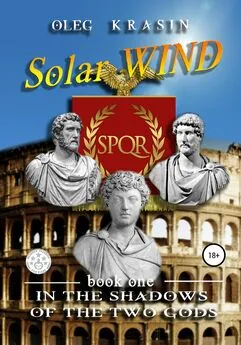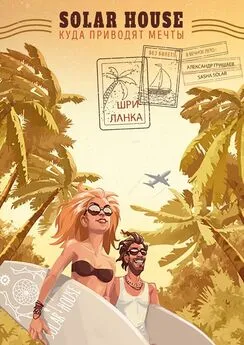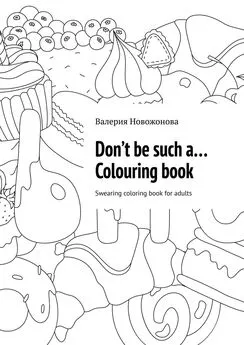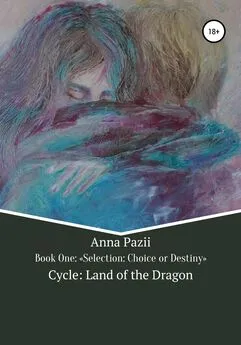Oleg Krasin - Solar Wind. Book one
- Название:Solar Wind. Book one
- Автор:
- Жанр:
- Издательство:неизвестно
- Год:2022
- ISBN:нет данных
- Рейтинг:
- Избранное:Добавить в избранное
-
Отзывы:
-
Ваша оценка:
Oleg Krasin - Solar Wind. Book one краткое содержание
MARCUS AURELIUS ANTONINUS
The emperor-philosopher, for a moment, thanks to him, the world was governed by the best and greatest man of his age.
Solar Wind. Book one - читать онлайн бесплатно ознакомительный отрывок
Интервал:
Закладка:
Father walks in the garden near the villa. He's in a white toga. It is early morning and sunlight, like a waterfall flowing from a clear blue sky, completely fills the garden. From the humid ground slowly rises the milky mist, absorbing brown trunks, green branches, leaves and gradually concealing the father. His white toga merges with white smoke, as if the figure of Marcus Annius Verus is removed deep into the garden. Marcus seems to see that he sees a colorful picture, which is filled with milk. It is as if the spirits of the garden seek to hide his father to spite him. The fog is stronger and higher. He sees his father’s waist, his chest, and his head, but then he completely disappears behind a dense shroud …
However, Marcus felt implicit gratitude to his parents for his masculinity, for the fact that he loved his mother, did not offend her. Perhaps that is why she did not marry, although the women of her circle, remaining widows, did not remain faithful to the dead for long. And some divorced their living husbands, remarrying three or four times. Such actions in Rome were not condemned, but rather were usual.
Here on the Caelian Hill, as his great-grandfather did not recognize the benefits of public school, Marcus's homeschooling began.
Music was taught to him by the Greek Citharode 20 20 Citharode was a classical Greek professional performer (singer) of the cithara.
Andron, with whom Marcus also learned geometry. Musician-geometer, what could have been weirder? But amazing people often met a curious boy. Or maybe he saw the unusual in the fact that the others considered the matter ordinary?
And Marcus studied painting from another strange man, also a Greek, Diognetus.
“Keep your hand softer, don't strain the brush!” Marcus was taught. “Art is like nature, vague strokes replace clear lines, empty space filled with inner air. This is where the mystery is born. Look at the sculptures covered with toga, tables or cloaks. Behind the soft folds is human flesh, the living soul, though wrapped in marble. This secret of revival is incomprehensible and eternal, but we Greeks still prefer the naked body, with the beauty of which nothing can be compared.”
“Didn't the poet Lucian condemn the call?” Marcus, who studied Lucian's grammar satire, asked.
“Nudity does not hide anything, and this is its appeal,” Diognetus concluded.
Marcus looked at the Greek mentor, absorbed, listened, watched. Diognetus taught him a lot. He was not like the grammar teachers of Alexander of Cotiaeum or Titus Prokul. They forced their pupils to read literature, memorize passages from Latin and Greek authors, to make speeches published by them, and then to disassemble. For example, Marcus had to come up with the text of Cato's speech to the Senate. Or an obituary for the Spartan king Leonid, who died in battle with the Persians.
Grammar exercises awakened the imagination, seemed to Marcus interesting, but Diognetus ridiculed them.
This tall, with a large forehead, sinewy artist, in general turned out to be a great skeptic. Marcus suspected that in Greece Diognetus attended a school of cynics 21 21 Cynic (from the Greek dog) is one of the Greek philosophical schools, followers of Socrates, who preached simplicity, escape from conventions.
and therefore wore a long uncombed beard, a simple squalid cloak. Laughing, he said of himself that he lived like a dog and that he was free from possessing useless things. “I am a true dog,” he grinned.
From him, Marcus learned that only strong personalities, heroes who were not afraid of anything but the gods could trust people. That's why the less you trust, the stronger you become. That's the paradox. Especially it is impossible to rely on magicians, on all sorts of fortune-tellers and broadcasters, who are the real charlatans, because they have appropriated the right of predictions belonging only to the Parks. 22 22 Parks are the Roman goddesses of fate.
“Their spells are a pittance,” Diognetus said of them harshly and mockingly, “they should be driven away like dirty and smelly dogs, plagued sick.”
Learning about Marcus's long-standing addiction to quail breeding, the free artist-philosopher ruthlessly ridiculed this boyish fascination. The harmless birds made him laugh contemptuously. “Philosophers,” he said morally, “don't breed birds, they eat them.”
Yes, Diognetus taught him a lot besides painting. Because of him, Marcus began to eat only bread and sleep on the floor, on hard skins, because his teacher went through it, and so were real Hellenics brought up.
Perhaps the fascination with cynics had gone too far. Like all boys his age, Marcus was too trusting and malleable to someone else's influence. He turned into soft clay in the hands of a Greek sculptor. It would be nice if these hands were worthy, noble, but not the hands of a cynic philosopher.
No, the strict and attentive Domitia Lucilla did not want her child to become a dog. Into a senator, consul, worthy son of Rome—yes. But into a dog—absolutely not! Diognetus's influence on Marcus seemed too aggressive, premature, and ultimately unnecessary.
She turned to Regin, who recognized her arguments quite fairly, and the artist-philosopher was dismissed from training. However, Marcus took the news quite calmly. By that time, he had already gained a youthful fascination with poverty, when the real world, nature looks like the antipode of patrician life and its inherent luxury, when it seems that rational simplicity is a certain meaning, and material poverty does not mean spiritual poverty.
However, the philosophy of the dog Diognetus was not in vain. Somewhere in the back of his mind this philosophy firmly sat, languished, raising difficult questions. She, this philosophy, could be an antidote to the life surrounding him. Just as King Bosporus Mithridates took poison in small doses not to be poisoned, Diognetus's views could relieve the feeling of the hardships and injustices of being.
But not now—the mother decided. Someday in the future, perhaps he would remember the words of the rebel.
Tiburtine Temptations
Bored, Hadrian sometimes sent for Marcus. When this happened, the young man would be brought to a villa near the Tempe Valley in Tibur. Of course, he would always travel with Domitia Lucilla. Masculinity was already awakening in the young man: the first hairs had begun to appear on his face, so far, a barely noticeable fluff, but quite visible on the cheeks. The voice began to grow rougher, and youthful alto sonority gave way to adult male bass. Hands and feet began to pour force, to strengthen, to develop. He cast curious glances in the direction of young girls—slaves and freedwomen, which did not hide from the watchful eye of Hadrian, but caught the secretive interest of Marcus to boy-slaves, and there were many of them in Tibur.
“You are not so simple my Verissimus,” Hadrian said, looking intently at Marcus, “What do you feel when you look at them?”
“What am I looking at?” Marcus didn't understand.
“On the young flesh, on the girls, on the boys. Don't you want to be the owner of these bodies? Take them, to own them? I see your passions raging, but you're secretive, Marcus Annius Verus. Don't hold back, let yourself go. Let go!”
Hadrian pronounced the last words in almost a whisper, leaning toward Marcus's ear, and Marcus smelled the incense that rubbed the emperor’s body, the scent of Paestum roses. Something tickled his ear. Oh, yes, it was Hadrian's beard! Marcus wanted to withdraw, but dared not, because no one knows what can infuriate the ruler of Rome. What if he decided that he smelled bad from his mouth and Marcus was squeamish? Or something like that? Hadrian's mind was unpredictable.
But Hadrian pulled himself away, and Marcus peered into his serious face, blazing with a secret fire in his eyes. These were the eyes of a man tired of life, tired from a lot of seeing, a lot of surviving, a man exhausted by nosebleeds, eyes talking about the inner heat that had not yet been extinguished.
The emperor sat down on a chair, stroking a graying beard, thick, curled into small rings.
Domitia Lucilla told Marcus about that beard. Allegedly, Caesar's face in his youth was spoiled by ugly scars and warts, and to hide his ugliness he grew his facial hair, although before him no ruler of Rome was bearded. He himself declared himself a supporter of Hellenism, an ancient Greek culture, and all the great Greeks, as it was known, were famous for their facial hair. With the exception of Alexander, the Great, perhaps. But Homer, but Thucydides, but Aristotle?
“What am I talking about? About passions.” Hadrian continues. “Let it be known to you, but I have a passion too. One, for life…”
The emperor fell silent, waiting for Marcus's clarifying question, and he did not make himself wait.
“What passion, Caesar?”
“Curiosity, my friend, I am curious, and this is my disease. Because of her, I lost my Antinous.” He blinked his eyes quickly, as if trying to drive away the tears that came running. “I was in Egypt and believed the fortune-telling that the soul of Antinous, so beloved by me, would not leave his body before me. She would ascend to the sky a wonderful star for only a moment, and then would return to earth and breathe life back into it. And my boy, my Antinous, believed it, too.”
Hadrian fell silent as if he found it difficult to speak, as if he were being suffocated by the sobs he had once forcibly restrained in order not to show weakness, and now the moment had finally come. But the emperor did not sob, after a certain pause he continued with a shuddering voice.
“In the evening, Antinous entered the waves of the Nile, and we stood on the shore, raising our heads to the sky. And we saw him, my Antinous. There, in the distant depths of heaven, a new star shone. There was a sign of the gods, the revelation of Jupiter!”
Hadrian looked up to the ceiling lined with colored mosaics depicting the assembly of the all-powerful deities of Rome. There was Jupiter, Juno, Mars, Hercules, and other, less powerful and significant deities. They strolled along the celestial ceiling, treading on the clouds with their heels, as if on the ground.
“What happened next?”
“He didn't come back,” the emperor said dryly, stretching his legs, showing beautiful sandals with golden laces, manicured feet.
Despite his dramatic story, he looked relaxed, lazy, but his eyes continued to blaze with secret fire, sometimes hiding behind centuries, which, like curtains in the theater, covered the turbulent life behind the scenes.
“What does your mother, the venerable Domitia Lucilla, do?” he asked.
“She walks around the portico and then goes to the library.”
“I have all the books in the world.” Hadrian doesn't miss the opportunity to smugly brag. “She'll have something to read. However, she can take my slave. I have good readers. They say you're about to turn fourteen soon?”
“That's right, Caesar!”
“It's time to put on the toga of an adult male. I think it's time! I watched your horoscope and the stars told me it was time. We're going to celebrate this in the next Liberalia spree.” 23 23 Celebrations in honor of Bacchus and Ceres on March 17. On this day, the young men wore toga virilis.
The thought of the toga virilis 24 24 Toga virilis is a toga of maturity worn by the Romans when they came of age at the age of sixteen.
hadn’t occurred to Marcus. Usually boys wore it at sixteen, or even later. But the emperor already distinguished him from the rest, so why not become an adult earlier? His mother and great-grandfather would be proud of him.
Интервал:
Закладка:










